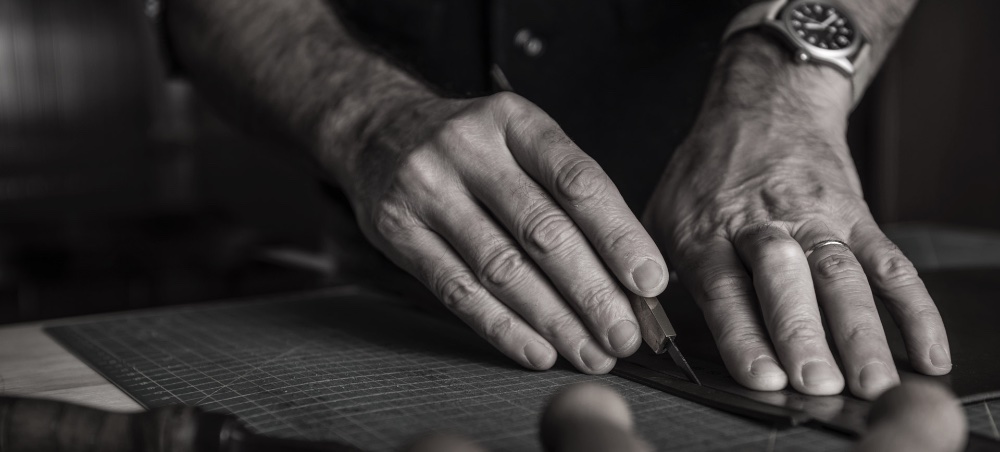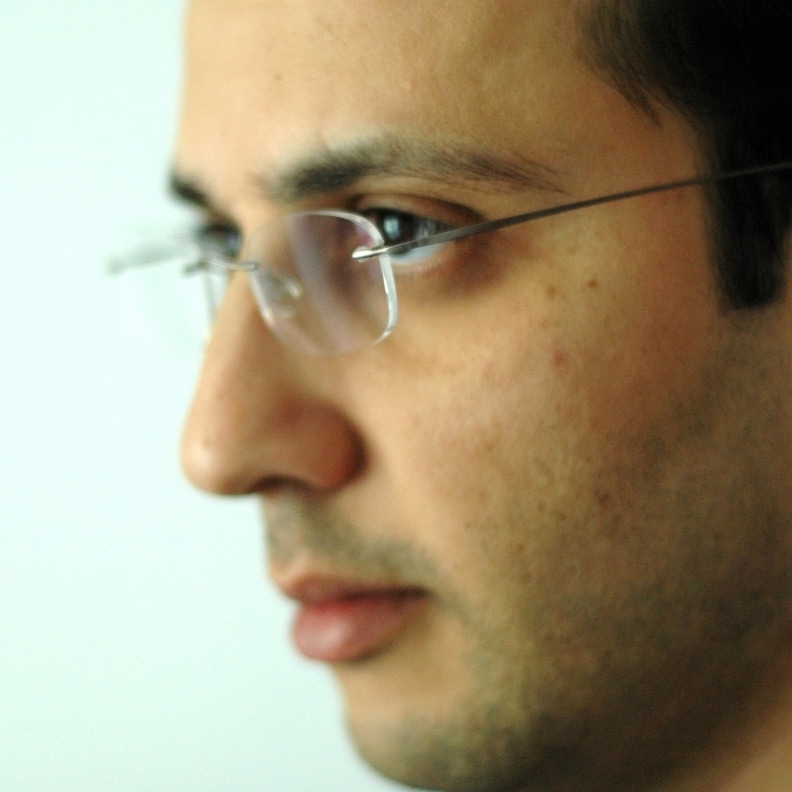What I learned from … (other professions)
I’ve always been fascinated and reflecting about the peacefulness and the respect that emerges when watching some masters doing their professions.
So, I spent lately some years time observing and trying to see the world through their lenses and may be, and if I’m good enough, adopt their skills and get inspired to improve myself personally and professionally.

Conductors & Maestros
I’ve always liked classical music since my childhood. Although, I’ve been always amazed and carried away by the music, I’ve been always captivated by the conductors and their different interpretation of a same piece.
Although their high musical sensitivity and their own vision and meanings of the piece, conductors show us great skills, such as leadership, dedication and, persuasiveness.
For instance, their ability to feel easy and confident while managing 100+ musicians, they are able to guide and to express with the right words their vision or their thoughts without harassing or giving straight instructions.
Conductors reveal us their sense of leadership by example through their creativity, knowledge, and dedication. They are unifying persons that trust their teams and the can create the needed conditions and environment to achieve the work.
In addition, they have a great sense of accountability, they feel the responsibility to be the messenger and the mediator for a composer to achieve perfectly the work.
As a result, I learned:
- leadership: by sharing my knowledge and my vision, and by trusting my team workers.
- persuasion: by understanding the context, making my communication clear and by motivating the others.
- accountability: by respecting others’ work and admitting my errors.
Pilots
As an engineer, I’ve been always captivated by planes and the engineering behind, they are very complex and sophisticated machines.
However, flying with these machines needs some set of skills that pilots should learn and many rules to follow mainly to ensure safety.
The first mastery that we can observe about pilots is they train continuously, they practice a lot to become better and safer. Also, they practice a lot in failure conditions, they try to learn and found the best way and routine to follow in case of emergency.
Besides, pilots are very calm in any tough circumstances, they maintain composure without rushing the things. Being calm helps them to stay focus and to quite their minds while trying to solve rough issues.
However, my favourite skill is with no doubt the use of checklists, pilots have checklists for almost everything: for the pre-flight inspection, before & after starting, when taxi-ing, before & after taking-off, when cruising, approaching, before & after landing and finally when shutting down the bird. In addition of checklists for failure and emergency cases.
Checklists provide details for every step in the process, what’s help them keeping things organized, readable, recallable and prioritized.
Eventually, I learned:
- checklists: obviously, this made my work easier in multiple aspects such as gathering requirements or preparing for a trip.
- practicing: by enhancing and seeking to acquire more skills in my field.
- being calm: by maintaning my composure in tough personal and professional situations.
Surgeons
I have a real admiration for doctors and surgeons. They have, generally speaking, a great human sense supplemented with a set of values like empathy, honesty, non-discrimination and ethics.
Besides their long studies and education career, surgeons are like the pilots when facing issues or incidents, they are calm and methodical, they don’t rush and try always to act according to the backup plans or the known practices.
They are good planners too. They plan ahead of the surgery in order to study the patient’s dossier and detect any possible risks.
Similarly, one of their most fascinating skill is that, when they are trying solve complications, they stay calm but also they keep communicating and sharing statuses and what they are doing or intent to do, they slow the rythm to not rush into mistakes. This helps them to stay focused, forces the team to work effectively and reduce the (human) error margin.
“Everything is conditional. We just don’t know what the conditions are.” – House M.D.
In addition, by examining all the sides before the surgery and during it, reflecting on their experiences and by listening to their team members, they show us their skill of critical thinkers and collaboration.
Therefore, I learned:
- planning: like the checklists above, I try to study the task and the situation before starting it.
- communication: by making it clear and precise even in tough condition
- critical thinking: by asking the right question and assess methodically the right information
Architects
“Always design a thing by considering it in its next larger context – a chair in a room, a room in a house, a house in an environment, an environment in a city play” – Eliel Saarinen
As seen in an older post, [great] architects are very good in understanding the context and the relations between the entities and the main subject.
Furthermore, their ability to see the whole picture is a wonderful mental exercise which gives them the ease to navigate between the hidden details and providing answers when needed.
I read once :
“Architecture begins with an idea.”
Architects are also good to transform abstract ideas and concepts to organized thoughts, visions and design.
They establish a design process where they are able with their sensitivity, understanding of the context to start from unclear concepts and ideas into real challenging projects.
Moreover, they show us how to try to not be concerned be the limitations (physical or emotional), they are more directly concerned of the human interaction and how it’s used.
Hence, they helped me to learn:
- contextualize: by never starting something without understanding the whole context.
- communication: by sharing elaborate ideas and thoughts.
- unconstrained: by trying to not be limited by/to a technology, a toy or a concept.
Watchmakers
In fact, I’m a vintage watch lover.
Unfortunately, I’m not a collector, but I always loved the elegance and the precision required to make a good watch.
Lately, I was searching to service an old watch and I was fascinated by how watchmakers work.
[..] If only I had known, I should have become a watchmaker. – Einstein
Apart their dexterity in handling tiny and often fragile components, they work with precision and patience. They can spend hours making small adjustments, fixing, or replacing a broken part calmly and focused.
In addition, they have to work methodically by organizing the components, remembering each part, assembling and repairing the pieces meticulously. We can see that in their way of labelling the components and parts, how they organize the tiny parts on their desk or how they service a watch orderly.
Furthermore, watchmakers have a great sense of perfectionism, they tend to deliver a highly accurate work, focus on every detail and do not accept less that what is required, they set high standards for their tasks and do not neglect their work.
Thus, I learned:
- patience: by taking time and do not rush.
- meticulousness: by acting precisely.
- excellence: by delivering high quality work.
Car/House/Electronics/Leather Restorer
Being myself an amateur restorer, I spend weekends and late hours trying to fix or repair by myself an old gadget, a house furniture or appliance, my kids toys or even my car. Even though, this activity doesn’t ensure me an income yet, but I liked to watch the professional restorers doing their job and digging in their mindset.
While watching them (on youtube), I discovered passionate people that have a real sense of responsibility and achievement. This can be seen in while changing the parts and replacing it the right way following the instructions recommended by the manufacturer and by using the right tools.
In addition, they are good in reverse engineering and good searchers for information by digging long hours into the documentations or the forums. Restorers are also great in sharing knowledge and working with peers about the best method, tools, or parts to use.
Furthermore, they show a real respect for their tools and for what they are working on, they usually try to not devalue them by miss using a tool or altering an original design. Their sense of craftsmanship helps them also to understand the story and the value of what they are restoring so they try by all means to keep its nature and soul.
For these reasons, restorers helped me to learn:
- work with passion and responsibility
- methodical-ness : by being organized
- Appreciate the value: by not underestimate my projects or my customers.
Traders
“Greed, for lack of a better word, is good” – Gordan Gekko
Hollywood made traders controversial and disputable: sometimes psychopathic (Partick Bateman in American Psycho) and in others ruthlessly greedy (Gordan Gekko in Wall Street) …
But one of the major skill that we can observe is that they are real risk takers, they developed an understanding of when and how to take on risk in under uncertain conditions, they are good in strategies and very mentally flexible to change it when needed.
Furthermore, they have a great confidence in themselves: they face the fear of uncertainty and accept the challenges, they are decisive, focused, and believe in what they do, what improve remarkably their chances of achieving their goals.
Since they are good strategists, they are good in quick and analytical thinking, they can assess and understand the situation fast, focus on the important aspects, the actions to take and their impact while eliminating the stress and acting quickly.
Thus, I learned:
- risk taking: by acting with confidence while facing the uncertainty
- strategies: by planning to achieve my goals
- flexible: to analyse and think according to the situation and the overall context
Final thoughts
Even though all the professions share the same aim of getting the skills for doing the job, but achieving the state of a craftsman forces us to work on multiple side of ourselves, we need to nourrish our versatility and sense of accomplishment, to keep our sense of quality and skillful work, to be an influencer and a model for our peers.
Evolving in our profession, specially in IT for my case, showed me that it’s not only about our technicality or expertise, but also about how to mature and progress into a mastering level where we can steer and guide others into more pleasant and efficient teamwork.

